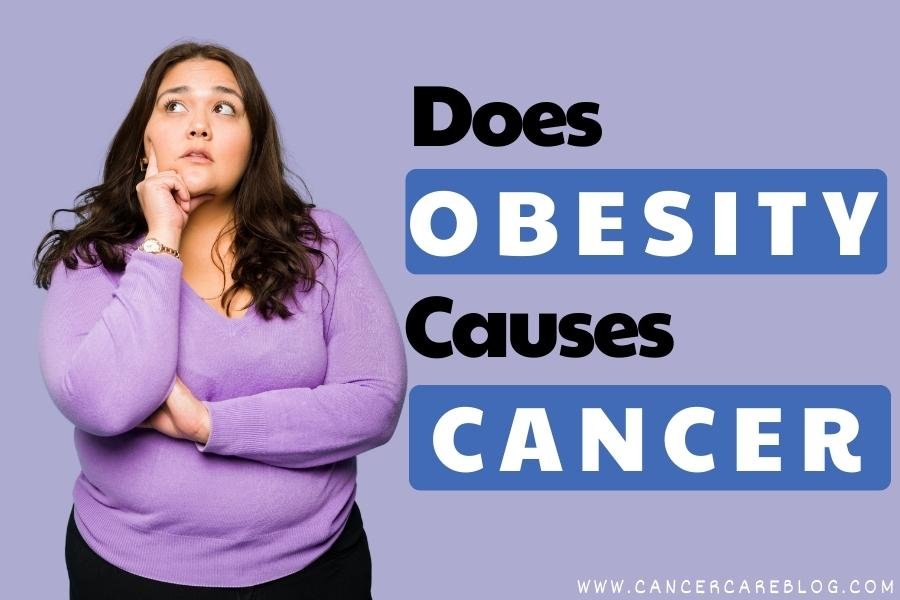I know how hard it can be to talk about weight—especially when you’re already worried about your health. But here’s the truth: obesity and cancer are more connected than most people realize.
And if you’ve been diagnosed with cancer or are doing everything you can to prevent it, this connection is something you need to understand.
This isn’t about judgment. It’s about protecting your future.
So, What’s the Link Between Obesity & Cancer?
Let’s keep this simple.
When you carry excess body fat, it doesn’t just sit there. Fat tissue produces hormones, affects your immune system, and creates an environment where cancer cells can grow more easily.
That’s why obesity is considered a major risk factor for several types of cancer.
Cancers Linked to Obesity
According to the American Cancer Society and CDC, obesity has been strongly linked to these types of cancer:
- Breast cancer (after menopause)
- Colorectal cancer
- Uterine (endometrial) cancer
- Kidney cancer
- Pancreatic cancer
- Liver cancer
- Esophageal cancer
- Gallbladder cancer
- Thyroid cancer
- Ovarian cancer
- Multiple myeloma
This doesn’t mean everyone who’s overweight will get cancer. But the risk is real, and it’s higher than you may think.
Why Does Obesity Increase Cancer Risk?
1. Hormone Imbalance
Fat cells release estrogen, and high levels of estrogen have been linked to cancers like breast and uterine cancer.
2. Insulin Resistance
Excess fat can lead to insulin resistance, causing your body to produce more insulin. High insulin levels may help cancer cells grow.
3. Chronic Inflammation
Obesity causes low-level chronic inflammation. Over time, that inflammation can damage DNA and trigger cancer development.
4. Immune System Stress
Extra weight can weaken your immune system, making it harder for your body to detect and fight off early cancer cells.
A Quick Reality Check
If you’re living with obesity and just got a cancer diagnosis, this is not your fault.
There are so many reasons why people gain weight—stress, medications, health conditions, lack of time, and so on. But if cancer is now part of your story, knowing how weight impacts your body can help you make the best decisions going forward.
Can Losing Weight Lower Cancer Risk?
Yes. Even small amounts of weight loss can reduce your cancer risk.
You don’t have to be skinny or perfect. You just have to start somewhere.
Losing even 5–10% of your body weight can:
- Improve hormone levels
- Lower insulin resistance
- Reduce inflammation
- Strengthen your immune system
That means your body will be better prepared to prevent or fight cancer.
What If You Already Have Cancer?
This is a big one.
If you’ve already been diagnosed with cancer, obesity may affect your treatment outcomes, recovery, and chances of recurrence.
Here’s how:
- Some treatments don’t work as effectively in obese patients
- Surgery can be more complicated
- Recovery may take longer
- Fatigue and weakness can be worse
But don’t lose hope. Weight loss during or after treatment, if done safely, can still help improve outcomes and lower recurrence risk.
How to Start Managing Weight During or After Cancer
Let me be honest—this isn’t easy. Especially if you’re going through chemo, radiation, or just trying to get your energy back.
But here’s what many cancer patients have found helpful:
- Talk to a registered dietitian—especially one who works with cancer patients
- Focus on nutrient-rich foods like fruits, veggies, whole grains, and lean proteins
- Avoid sugar-loaded and ultra-processed foods
- Start with gentle movement—short walks, stretching, even standing more often
- Get enough sleep—poor sleep can affect weight gain
- Join a support group or connect with others who’ve been there
Let’s Talk About Processed Foods
A lot of obesity in the US is tied to the Western diet—which is high in:
- Processed meats
- Sugary drinks
- Fast food
- Refined carbs
- Trans fats
These aren’t just bad for weight—they’ve also been linked directly to higher cancer risk.
Start reading food labels. Make one better choice at a time. That’s how real change happens.
You’re Not Alone
If you’re dealing with obesity and cancer at the same time, please know this: You are not alone.
Millions of Americans are facing the same struggle. The key is to be honest with yourself, get support, and focus on what you can control.
Even small changes can bring huge benefits to your body and your future.
Sources
American Cancer Society – Obesity and Cancer
Centers for Disease Control and Prevention – Obesity and Cancer



